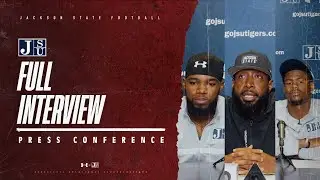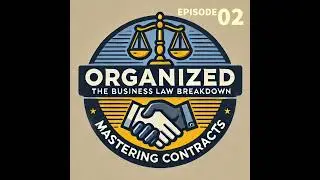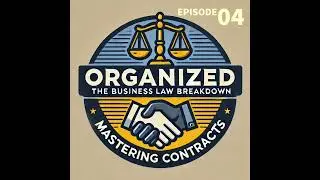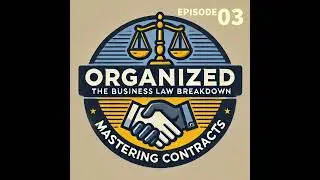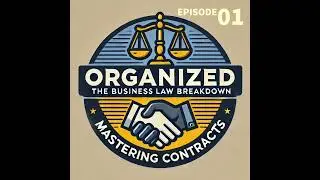Long-Term Contracts: When Is a Signed Wring Required? The Statute of Frauds and Promissory Estoppel
*Time-stamp links in the description below*
*Transcript available at http://bit.ly/SoF1yr*
The statute of frauds requires certain kinds of contracts to be evidenced by a writing signed by the party to be charged. But there may an exception to this rule when a party has taken action in reliance of a promise that is not evidenced by a writing. This exception, also known as promissory estoppel, touches on several essential concepts in contract including, what are promises, and when justice requires some deviation from a legal rule. But courts should be hesitant in deviating from statutory commands, as that deviation may exceed the bounds judicial discretion.
The understand this critical rule, this video explores two cases with very similar facts that came out quite differently: McIntosh v. Murphy, 52 Haw. 29, 469 P.2d 177 (1970), and Stearns v. Emery-Waterhouse Co., 596 A.2d 72 (Me. 1991).
Although the classes of contract that require evidence in a writing signed by the party to be charged vary state to state, the common classes are easily remembered by the acronym “MYLEGS,” which stands for Marriage (contracts in consideration thereof), Year (contracts that cannot be performed within), Land (contracts transferring an interest in), Executors (contracts promising an estate’s obligation to be personally guaranteed by), Goods (contracts for more than $500 worth), and Suretyship (contracts to answer for the obligations of another).
The promissory estoppel exception applies to all of these common classes of contract such that a writing signed by the party to be charged is not required where its elements —the existence a promise upon which the promisor foreseeably should expect to induce action or forbearance by the promisee and which actually does induce such action or forbearance—are met, but only to the extent that justice requires enforcement of that promise.
0:00 Intro
2:14 “Statute of Frauds” Defined
2:55 Common Classes of Contracts that Require a Signed Writing (“MYLEGS”)
4:52 The One-Year Provision Explained
5:37 Promissory Estoppel Exception to the Statute of Frauds (Action in Virtue of Reliance)
6:42 “Promise” Defined
9:00 Overview of “Injustice” Factors of Promissory Estoppel
10:16 Factor One: Availability of Other Remedies
11:05 Factor Two: Clear Connection Between the Action and the Remedy
12:06 Factor Three: Evidence that the Promise Was Actually Made
13:54 Factor Four: Reasonable Reliance
15:02 Factor Five: Foreseeable Reliance
17:55 McIntosh v. Murphy, 52 Haw. 29, 469 P.2d 177 (1970)
31:00 Stearns v. Emery-Waterhouse Co., 596 A.2d 72 (Me. 1991)
34:45 Comparing the Cases: The Rule versus the Exception
38:52 Conclusion
Смотрите видео Long-Term Contracts: When Is a Signed Wring Required? The Statute of Frauds and Promissory Estoppel онлайн, длительностью часов минут секунд в хорошем качестве, которое загружено на канал Business Law Education 13 Апрель 2021. Делитесь ссылкой на видео в социальных сетях, чтобы ваши подписчики и друзья так же посмотрели это видео. Данный видеоклип посмотрели 712 раз и оно понравилось 12 посетителям.
